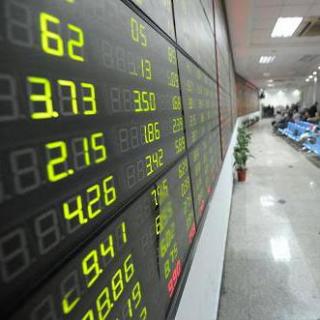
介绍:
China's A-share market has achieved a yearly gain of 9 percent in 2015, despite wide-range fluctuations.
With a decline of some 1 percent on Thursday, the Shanghai Composite Index ended the past year up 9.4 percent throughout the year.
The smaller Shenzhen Component index closed the year by dipping 1.8 percent on Thursday, but it posted a whole year gain of 15 percent.
The total turnover of both bourses grew over threefold compared to the previous year, to some 42 trillion yuan or 6.5 trillion U.S. dollars.
But it has been a wild year for China's stock market.
Wu Xiaoqiu, a professor from the Renmin University of China, said share markets in 2015 made history.
"This year marks the first real market crisis for China's capital market since it was established 25 year ago. We saw massive margins of ups and downs. Share prices soared over 56 percent within 65 days and slumped 40 percent over a mere 52 days. Though we saw a yearly gain of 10 percent, these large swings exposed the weakness in China's capital market. They inspired policy makers how to improve the market and the rules for market players. So this is a very important step during the process of opening-up our capital market."
Plunges in the third quarter wiped trillions of U.S. dollars off the value of shares.
The Shanghai Composite Index rallied to a seven-year high of nearly 5,200 points in mid June, and then collapsed 42 percent to under 3,000 points in just two months.
A number of financial institutions have forecasted that the Shanghai Composite will swing over a wide range, between 3,000 and 4,500 points this year.
China's securities regulator rolled out a slew of measures to curb the volatility and risks.
Starting today, the circuit breaker mechanism has been officially launched.
According to the mechanism, if the index changes by 5 percent after 2:45 p.m., or if the index rises or falls by 7 percent, trading will be suspended for the day.
The suspension time in the event of a major swing would be set at 15 minutes.
At the same time, the China Securities Regulatory Commission has decided to drop its requirement of advance payment for initial public offering subscriptions from today.
A registration-based new IPO system will also be launched earlier this year.
大家还在听

